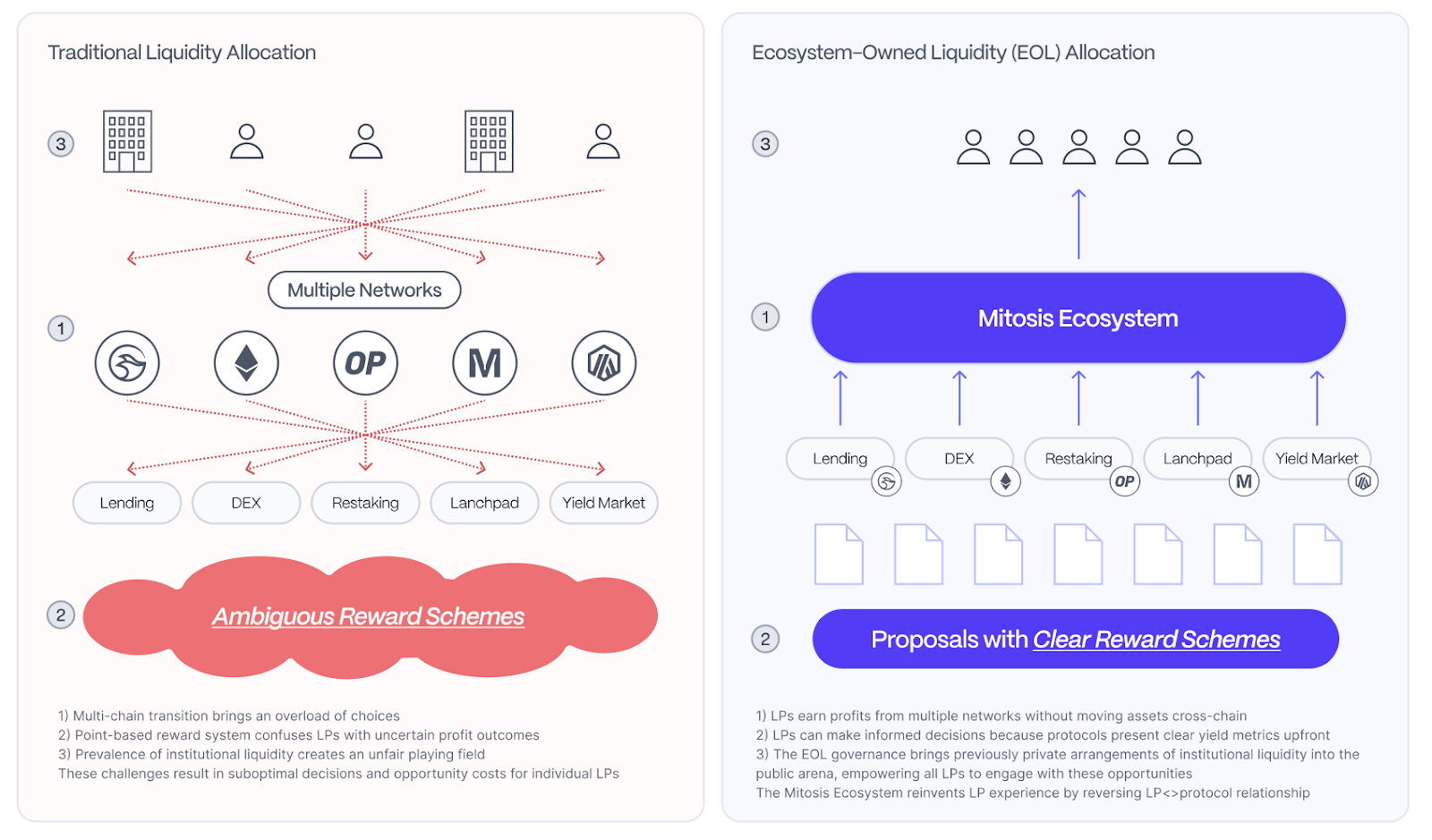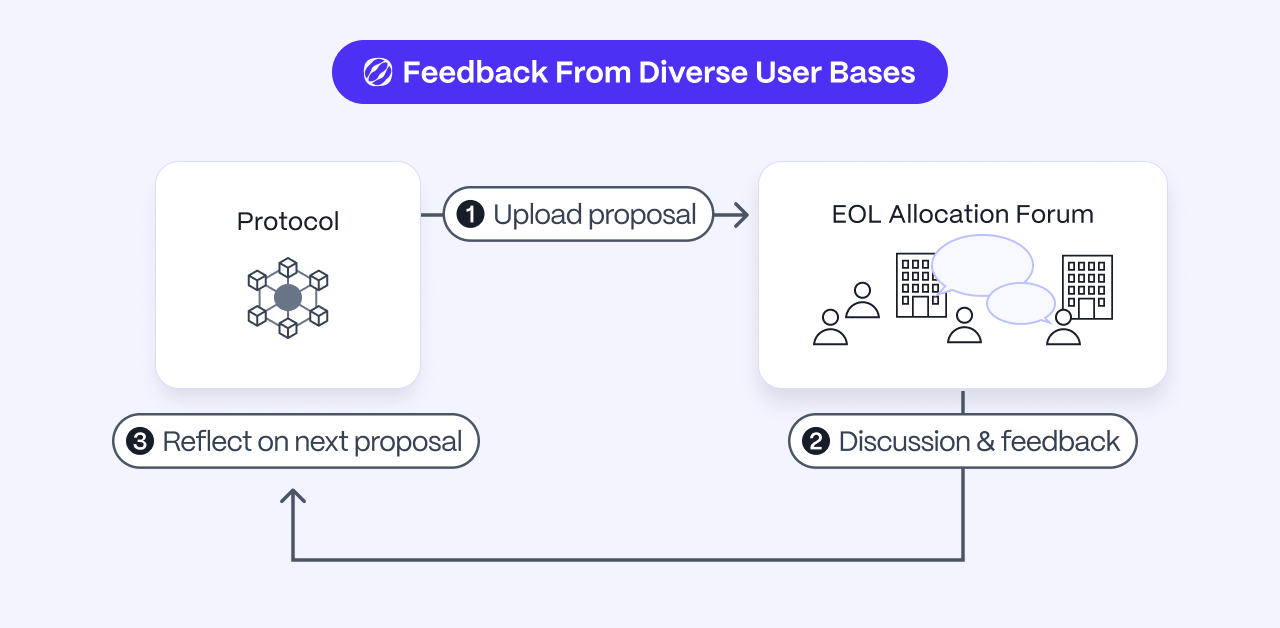EOL Allocation Governance
Enhancing Decision-Making for LPs and Protocols

For LPs: More Accurate Decision-Making
EOL Allocation Governance enables the LPs to make informed decisions with clear reward schemes upfront. The LPs in the ecosystem can use collective intelligence in the process.
In the current structure, retail LPs seek out publicly announced opportunities individually to allocate their assets. In the case of EOL, EOL Allocation Governance resembles the dynamics between institutional liquidity and protocols in that protocols approach EOL first with their proposals. The protocols must suggest a clear, competitive reward scheme to gain support from the community. This new dynamic implies several benefits for LPs:
-
Upfront, Clear Reward Scheme: Proposals provide transparent, explicit profit outcomes, simplifying comparisons between reward schemes.
-
Reduced Research Burden: Protocols approach LPs first with their proposals, reducing the burden on individual LPs to keep up with all the news and updates to discover yield opportunities.
-
Leveraging Collective Intelligence: LPs can leverage the community’s diverse knowledge base on different networks and applications.
-
Avoiding Suboptimal Opportunities: It only takes one knowledgeable LP to submit proof (e.g., explanation, statistics, link) to filter out a suboptimal opportunity.
All these factors increase the chances for LPs to make accurate decisions, thereby reducing opportunity costs.
For Protocols: Preemptive Feedback From Diverse User Bases
Through EOL Allocation Governance, protocols can receive feedback from diverse LPs to gain insights into reward schemes and the protocol itself.

-
Reflecting feedback on reward schemes in advance allows protocols to implement market-aligned rewards and avoid post-announcement disputes. Building rough consensus throughout the governance process before finalizing the reward enhances efficiency in the liquidity bootstrapping process.
-
Feedback on the protocol itself provides a valuable testing ground for ideas before committing more resources. User feedback on various aspects helps refine and develop ideas to better align with market values and user needs.